IP pharma challenges in 2019
In connection to the publication of a new issue of the Stockholm Intellectual Property Law Review, where our researcher Marcus Holgersson serves on the board of directors, a seminar on IP pharma challenges in 2019 was held in Stockholm on June 4, 2019. The seminar covered several important topics, including the use of and uncertainty related to doctrines of equivalents, the opportunities and risks with CRISPR-Cas9 gene editing technologies, and branding and trademarking pharmaceuticals. Much more can be read about these topics in the latest issue of Stockholm Intellectual Property Law Review, available here.
The seminar was followed by a dinner, celebrating the recent graduates of the IP Law master program of Stockholm University. We wish the students best of luck with their future careers in the IP Law field.
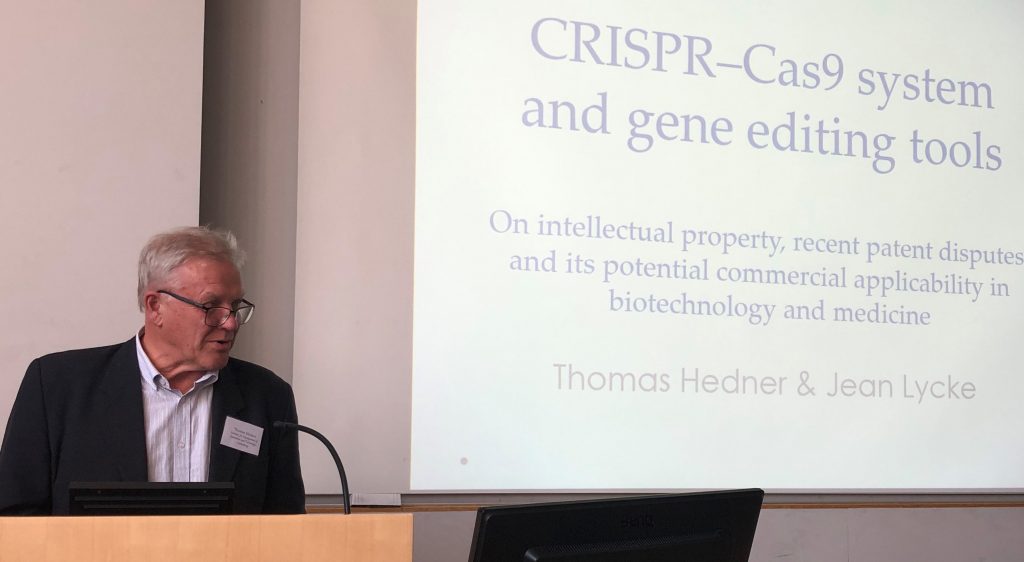
Thomas Hedner from IMIT giving a thought-provoking talk on the opportunities and risks with CRISPR-Cas9
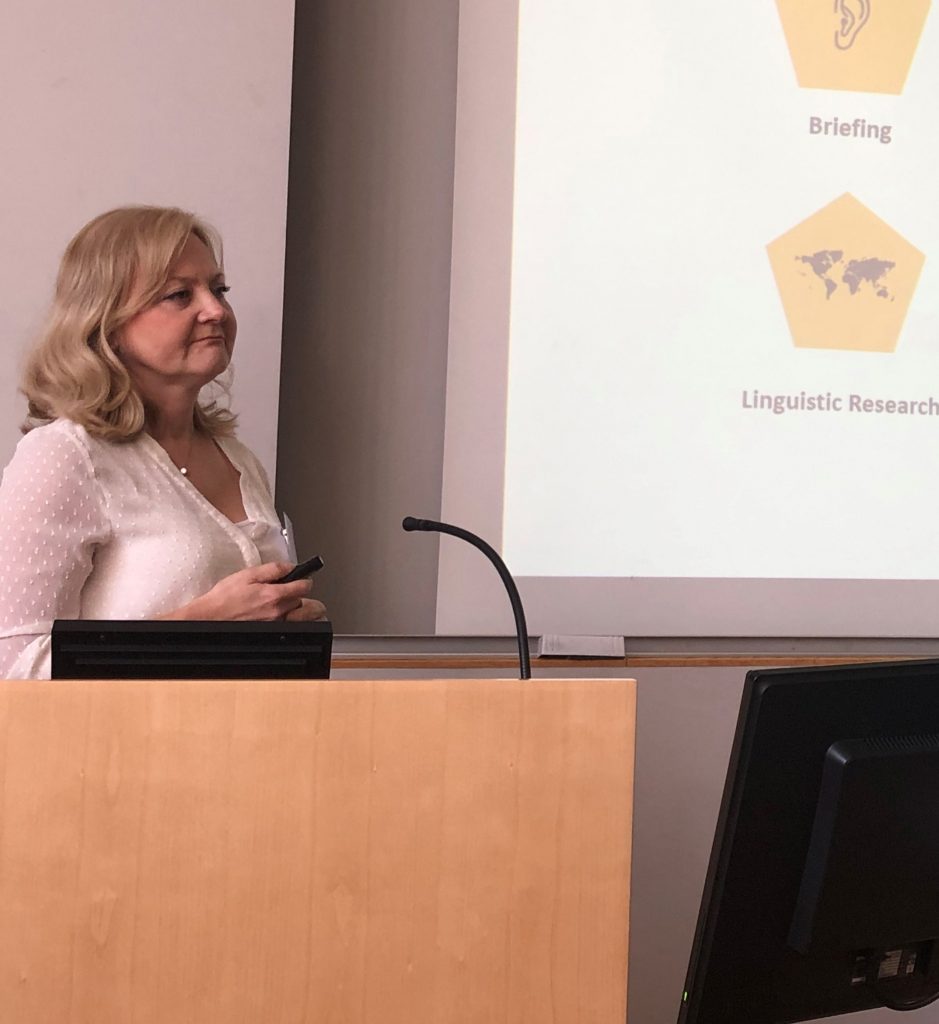
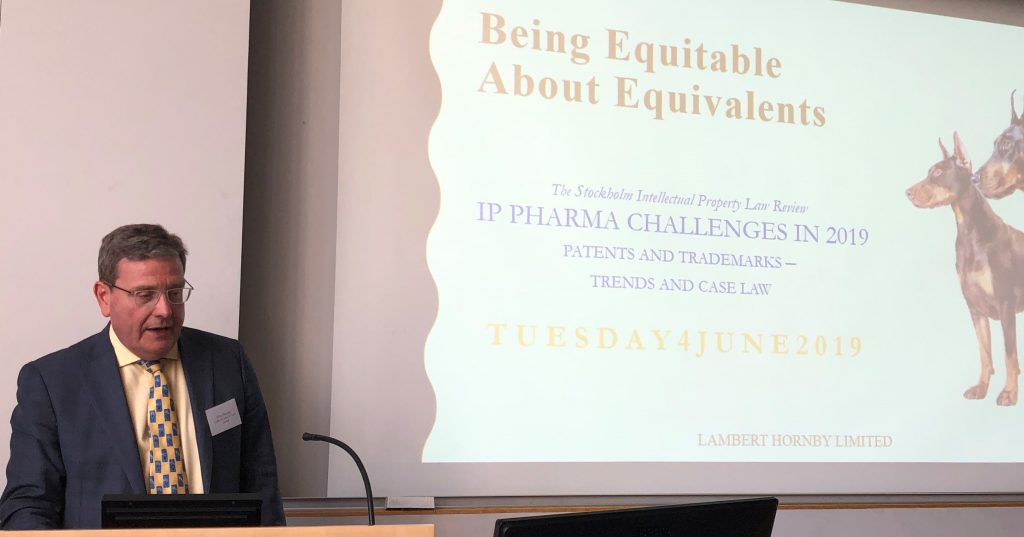
John Hornby from Lambert Hornby Ltd talking about the doctrine of equivalents from a UK perspective
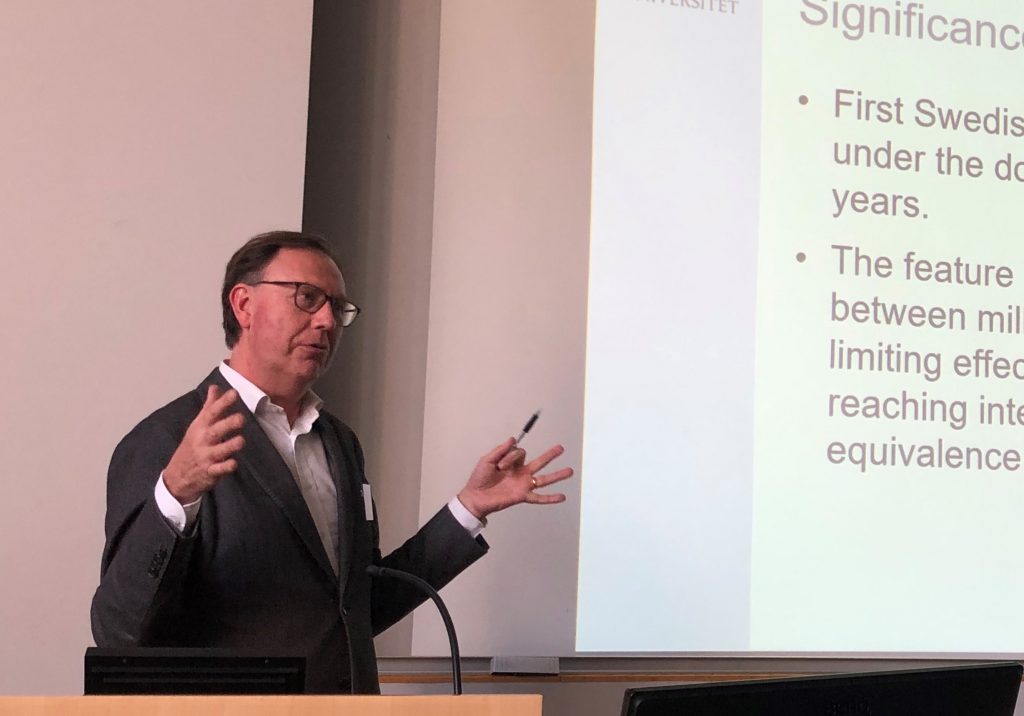
Bengt Domeij from Uppsala University giving a Swedish perspective, also on the doctrine of equivalents
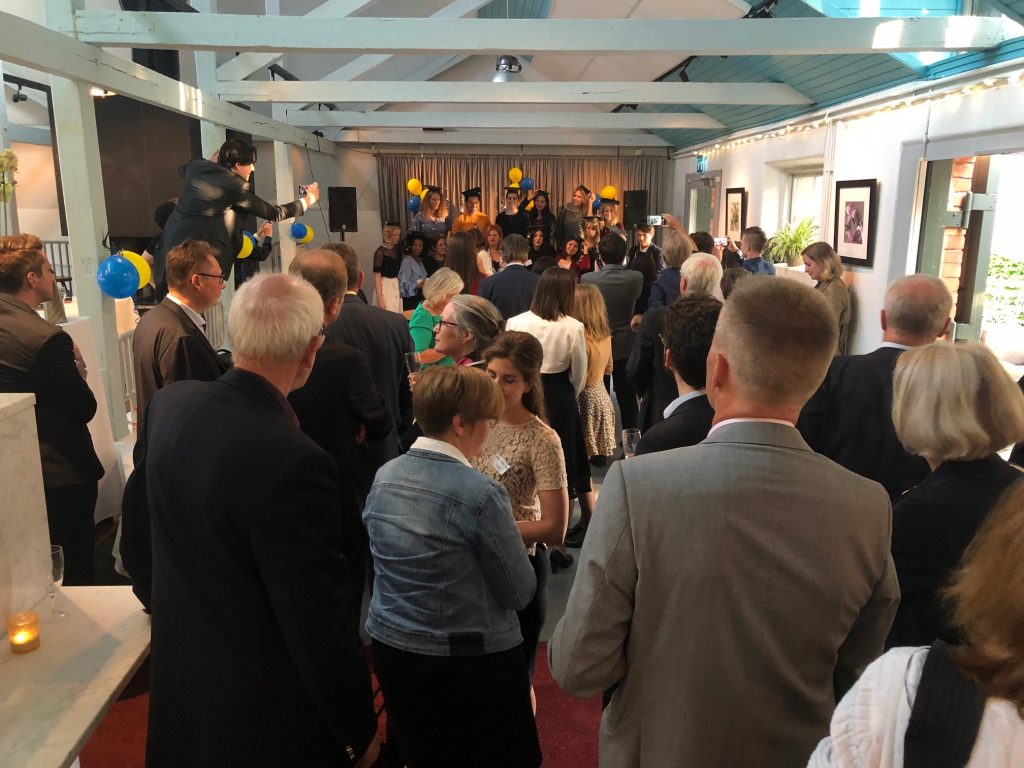
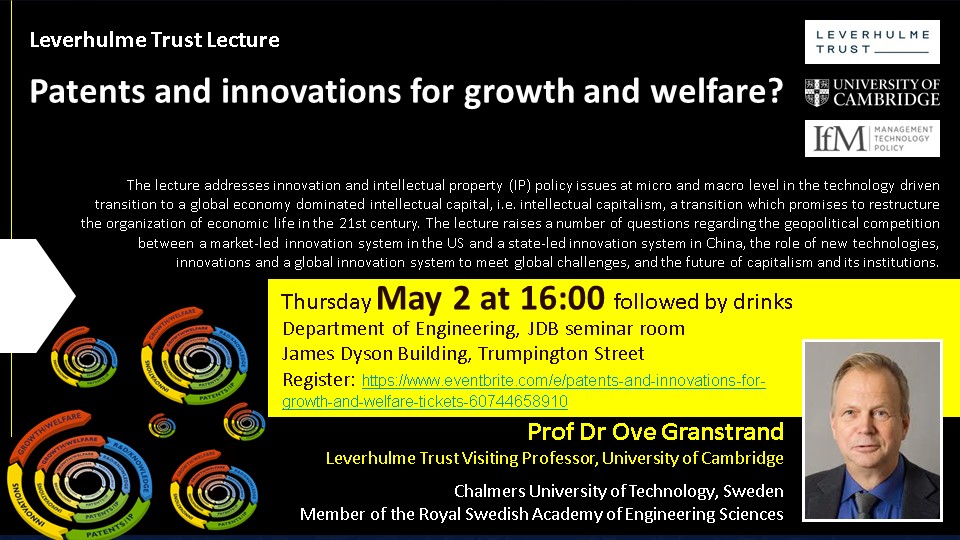
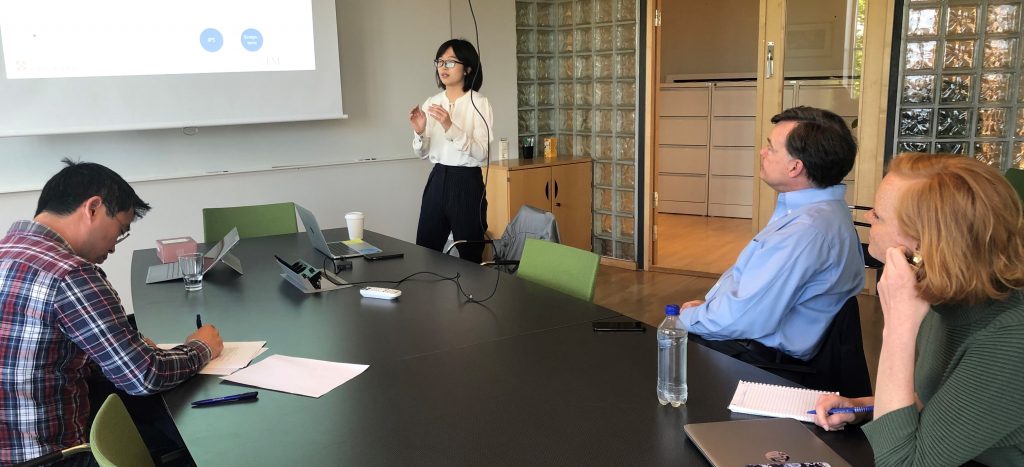
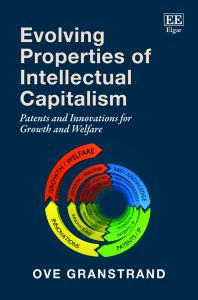 In this new book Ove tries with a Swedish outlook to put innovation and IP in the current context of a global economy, driven as fast as ever by new technologies and innovations with new IP savvy players from Asia joining in the driver’s seat, notably China, building up large portfolios of IP resources along with financial and physical ones. International competition has again turned into competition between economic systems – market-led capitalism as in the US against state-led capitalism as in China. It will be highly interesting to see what roles innovation and IP will play in this geo-political game. More and most importantly however, is to see how innovations and IP can be used to meet all the technology-related global challenges. Will capitalist institutions like markets, entrepreneurship and property rights as we know them be sufficient? Probably not. Will they even be necessary? Most likely, but evolved. So at the same time as the intellectual properties in the capitalist economy evolve, we have to evolve the properties of intellectual capitalism.
In this new book Ove tries with a Swedish outlook to put innovation and IP in the current context of a global economy, driven as fast as ever by new technologies and innovations with new IP savvy players from Asia joining in the driver’s seat, notably China, building up large portfolios of IP resources along with financial and physical ones. International competition has again turned into competition between economic systems – market-led capitalism as in the US against state-led capitalism as in China. It will be highly interesting to see what roles innovation and IP will play in this geo-political game. More and most importantly however, is to see how innovations and IP can be used to meet all the technology-related global challenges. Will capitalist institutions like markets, entrepreneurship and property rights as we know them be sufficient? Probably not. Will they even be necessary? Most likely, but evolved. So at the same time as the intellectual properties in the capitalist economy evolve, we have to evolve the properties of intellectual capitalism.